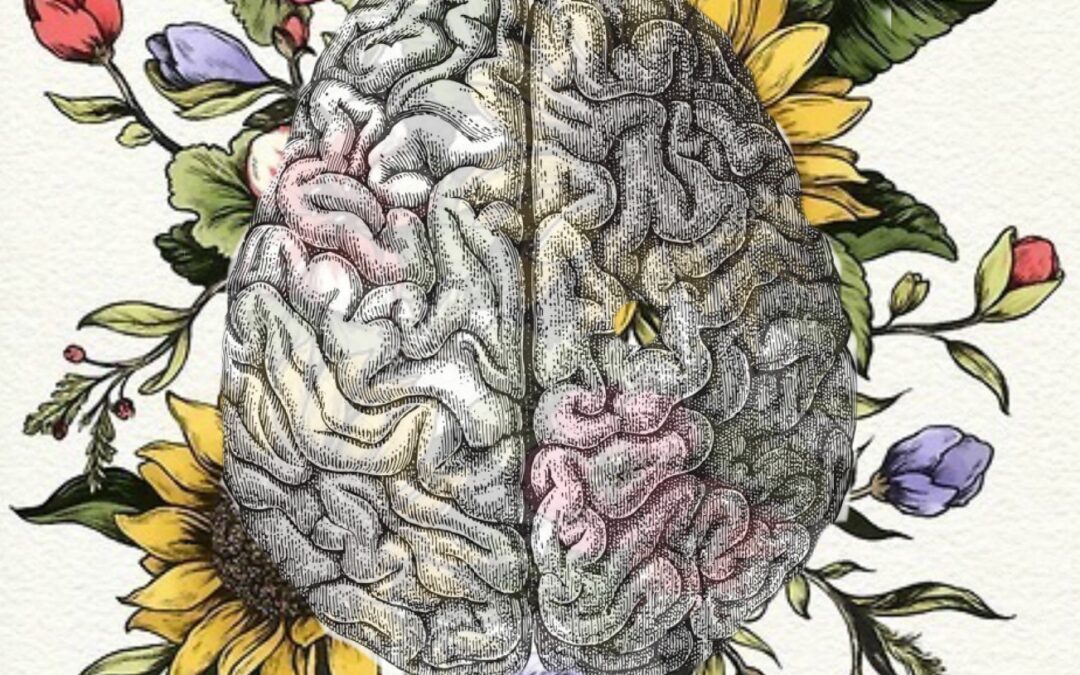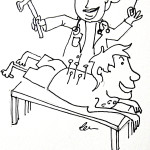 According to Statistics Canada, 1 in 4 people suffer from a mental health condition in Canada. Most of these individuals will fall between the cracks of a medical system that is not equipped to deal with the rise of stress and mood disorders, such as depression.
According to Statistics Canada, 1 in 4 people suffer from a mental health condition in Canada. Most of these individuals will fall between the cracks of a medical system that is not equipped to deal with the rise of stress and mood disorders, such as depression.
Naturopathic doctors understand that the mind and body are connected. Science has long established the relationship between the digestive system and mood, often termed the “Gut-Brain Connection” and the connection between the mind, mental health and the immune system, even establishing an entire field termed “psychoneuroimmunology”, linking depression to inflammation in the brain and body. However when it comes to our conventional healthcare model, mental health conditions are treated as separate from the rest of the body. In mainstream medicine, depression is largely treated as a brain chemical imbalance. It is thought that deficiency in the “happy” chemicals in the brain, like serotonin and dopamine, influence mood and must be “corrected” with anti-depressants. Despite emerging science about the brain, emotions, and mood, mental health conditions are commonly viewed as something that has “gone wrong” in the brain.
Most treatments for depression and anxiety are based on the low-serotonin theory of depression, which roughly states that depression is due to decreased production of certain neurotransmitters, such as serotonin, in the brain. Following this model, drugs are prescribed to artificially change neurotransmitter levels. While we understand that anti-depressant medications such as selective serotonin and selective serotonin and norepinephrine re-uptake inhibitors (SSRIs and SNRIs) work better than placebo (in about 40-60% of cases), scientists don’t know for certain why they have an affect. When starting SSRI and SNRI drugs, patients experience an immediate increase in neurotransmitter levels in the brain, however, it takes 2-4 weeks before there are noticeable changes to mood. This points to the fact that the proposed mechanism (increasing neurotransmitter levels) may not in fact be how these drugs work. However, it is in the interest of the pharmaceutical companies manufacturing such drugs to perpetuate the idea that anti-depressant medications are “restoring” the natural chemical balance in the brain, despite lack of evidence that this is the case.
This is furthered by a paper published by the Neuroscience and Behavioural Reviews last year that challenges the low-serotonin theory of depression, stating that improvement on SSRI medication might be the body overcoming the effects of the drug, rather than the drug assisting patients in feeling better (1). This may explain why patients feel worse in the first few weeks of starting anti-depressant medication. The authors venture to say that anti-depressant medication may in fact be creating an obstacle to cure in patients with depression, making it harder for patients to recover in the short-term. The authors of the study argue that most forms of depression provide an evolutionary advantage by providing the body with natural and beneficial adaptations to stress (1).
Since we understand that our digestive system and immune system are linked to our mood and overall functioning, it becomes imperative that we learn how to fuel our brains, improve digestion, balance inflammation and take proactive measures against our increasing levels of stress.
Getting help for a mental health disorder first involves removing the stigma and discrimination around mental health—depression, anxiety and other mood disorders are not signs of weakness, they are common conditions that a large portion of the population is dealing with daily. Next, it is important to seek help from a trusted practitioner who will take the time to listen to your case, treat your body as a whole entity, not just a collection of organs, and connect with you as a person, not just your symptoms or diagnosis. The following are some proposed and effective methods of working with depression and mental health conditions.
1. Healing the gut.
Science has largely started referring to the digestive system as the “second brain”, due to its possession of something called the Enteric Nervous System, a collection of millions of nerve cells that control digestive function and communicate directly with the brain. Because of this intricate connection, research has shown that irritation to the digestive system, through bacterial overgrowth, gut inflammation and a variety of other mechanisms, can trigger significant changes to mood (2,3). Since 30-40% of the population suffers from digestive symptoms such as bloating, flatulence, GERD, IBS, constipation, diarrhea and IBD, this connection is important. Additionally, emerging research is showing the link between beneficial gut bacteria and mood, establishing the fact that certain probiotics are capable of producing neurotransmitters and thereby contributing to mood and mental functioning (2,3).
Naturopathic medicine has long established a connection between the gut and brain when it comes to health, recognizing that conditions such as IBS are aggravated by stress, depression and anxiety and treating the digestive concerns with patients with depression by prescribing quality probiotics and identifying and removing food sensitivities among other things. In addition, not only is gut function important for regulation of the nervous system and, in turn mood, a healthy digestive system is required for proper absorption of the amino acids and micronutrients necessary for synthesizing neurotransmitters.
2. Essential nutrients and adequate nutrition.
If the body doesn’t possess the building blocks for building hormones and neurotransmitters, it won’t make them. While SSRI medication keeps brain serotonin levels elevated, it also depletes the vitamins and minerals responsible for producing serotonin. Supplementing with quality brands and correct doses of vitamins B6, folate and B12, as well as magnesium and zinc and ensuring adequate protein intake, is essential to treating mental health conditions and mood. Some sources state that 70-80% of the population is deficient in magnesium. Since magnesium is needed for production of a variety of hormones and neurotransmitters, a deficiency can cause an array of symptoms from low mood and muscle pain, to insomnia and fatigue. Getting put on high-quality, professional grade vitamins and minerals at therapeutic doses should be done under the care of a licensed professional, such as a naturopathic doctor.
3. Fish oil.
A meta-analysis in 2014 concluded that fish oils are effective at treating low mood and even patients diagnosed with major depressive disorder (4). Since the brain requires the fatty acids EPA and DHA found in fish to function, ensuring adequate intake of fatty fish or using a high-EPA supplement at an effective dose is a cornerstone of natural treatment for depression. The ratio of EPA:DHA is important, however, so ensure you’re receiving a prescription from a licensed naturopathic doctor (not all brands on the market are created equally and some products may even negatively impact mood). Another proposed mechanism of action for fish oil benefitting mood is in its anti-inflammatory properties. Emerging research has suggested that depression may be correlated with low-levels of brain inflammation.
4. Healing the adrenals.
According to evolutionary biology, depression may be a necessary adaptation to stress that promoted our survival and ability to pass on our genes. Since about 70% of the population identifies as being significantly stressed, it is no wonder that the number of mental health conditions is also rising. Naturopathic medicine and other alternative health fields recognize a collection of symptoms caused by prolonged, chronic stress that they term “adrenal fatigue”. Adrenal fatigue is characterized by high levels of prolonged mental, emotional and physical stress, low energy, insomnia, food cravings, and depressive symptoms such as low mood, apathy and lack of enjoyment in previously enjoyed activities, changes to sleep, weight, appetite and energy levels. Whether symptoms of chronic stress are misdiagnosed as mild to moderate depression in people, or whether lifestyle stress is the cause of physiological depression, there is often a significant stressor that complicates symptoms of low mood in most people. Using herbs, nutrition and stress-reduction techniques is important for improving resilience, as is taking steps to decrease the amount of stress present in one’s life. Researching and experimenting with various self-care practices is also important for managing low mood and promoting mental health.
5. Mind-body medicine.
Mind body medicine involves working with the body’s energetic healing forces to remove obstacles to cure and ensure the smooth flow of energy throughout the body. The main modalities that naturopathic medicine uses for these purposes are acupuncture, homeopathy and working with meditation and visualizations. While some reject these streams of healing as being pseudoscientific, there is a growing body of research to back them up. A study by the Journal of Alternative and Complementary medicine showed that acupuncture was as effective as medication at reducing depression after six weeks (5). Mind-body medicine works by integrating our thoughts, emotions and physical sensations to give us more awareness about the body as well as provides us with powerful tools for managing stress.
6. Counselling.
We know that counselling is a preferred first-line treatment for depression and other mood disorders and that counselling and medication in combination is far better than medication alone. While there are a variety of psychotherapeutic models and styles, research suggests that the therapeutic relationship is one of the most powerful determinants of positive health outcomes (6). Therefore working with a clinician that you trust, connect and resonate with is the first step to finding effective therapy. Cognitive Behavioural Therapy (CBT), a style of therapy based on changing ingrained and habitual thoughts, beliefs and behaviours that may be contributing to low mood, is one of the main therapeutic modalities for depression and is supported by a number of studies. Motivational Interviewing is another counselling model that helps patients work through and change addictive behaviours and has substantial evidence behind it.
In addition to established therapeutic approaches like Cognitive Behavioral Therapy (CBT) and Motivational Interviewing, there’s growing recognition of the importance of specialized interventions tailored to specific mental health challenges. For individuals grappling with complex issues such as trauma or relationship difficulties, psychosexual therapy can offer a targeted and effective means of support. This form of therapy delves into the intricate interplay between psychological and sexual health, addressing concerns that may have profound impacts on overall well-being. Moreover, it’s crucial to acknowledge the role of holistic approaches in promoting mental wellness. In essence, the landscape of mental health treatment is diverse and evolving, offering a spectrum of options to meet the unique needs and preferences of each individual on their path to healing and growth.
When seeking therapy, it’s essential to consider not only the specific therapeutic model but also the fit between the therapist and the individual seeking help. For instance, someone in New York City might specifically search for cbt therapy nyc to find therapists trained in this evidence-based approach within their local area. However, beyond geographical considerations, finding a therapist with whom one feels a genuine connection and trust is crucial for therapy to be effective. This connection forms the foundation of a therapeutic relationship that can support individuals in navigating their mental health challenges and achieving meaningful change.
7. Mindfulness.
More and more research is coming out about the Buddhist practice of mindfulness meditation for preventing depression, managing stress, working with mood disorders and preventing relapse in major depressive disorder. Recent evidence published in JAMA has shown that Mindfulness-Based Cognitive Therapy (MBCT), a form of secular mindfulness meditation was just as effective as medication for treating mild to moderate depression (7). Mindfulness involves looking inward, without judgment at the thoughts, feelings and physical sensations produced by the body. Practicing it cultivates the skills of awareness, attention and presence. According to Jon Kabat-Zinn, one of the founders of MBCT, “Mindfulness is awareness that arises through paying attention, on purpose, in the present moment, non-judgementally. It’s about knowing what is on your mind.” Mindfulness improves mood by allowing participants to better understand their own emotional states without getting caught up in identifying with negative emotions and belief systems.
If you or a friend or family member is suffering from a mental health condition, it is important to be educated about options. Naturopathic medicine is a great first-line option for those who have been newly diagnosed with a mood disorder, as well as a preventive measure for those simply dealing with stress, and a great complement to those who have been living with a mental health condition for some time and are already on medication. I work with children, adolescents, adults, pregnant patients, postpartum women and patients dealing with addictions. I have additional training in motivational interviewing, mindfulness-based stress reduction, narrative therapy and CBT and structure my visits to allow for more time for counselling. Contact me for more information on how to work with me.
References:
- Andrews, PW, Bharwani, A, Lee, K.R., Fox, M, Thomsom, JA. Is serotonin an upper or a downer? The evolution of the serotonergic system and its role in depression and the antidepressant response. Neuroscience & Biobehavioral Reviews, 2015; 51: 164
- Dinan, T, Cryan, J. Regulation of the stress response by the gut microbiota: Implications for psychoneuroimmunology. Psychoneuroimmunology (2012) 37, 1369-1378
- Wang, Y. Kasper, LH. The role of micro biome in central nervous system disorders. Brain Behav. Immun. (2014).
- Grosso G, Pajak A, Marventano S, et al. Role of Omega-3 Fatty Acids in the Treatment of Depressive Disorders: A Comprehensive Meta-Analysis of Randomized Clinical Trials. Malaga G, ed. PLoS ONE. 2014;9(5):e96905. doi:10.1371/journal.pone.0096905.
- Sun, H, Zhao, H, Ma, C, Bao, F, Zhang, J, Wang, D, Zhang, Y. and He, W. Effects of Electroacupuncture on Depression and the Production of Glial Cell Line–Derived Neurotrophic Factor Compared with Fluoxetine: A Randomized Controlled Pilot Study. The Journal of Alternative and Complementary Medicine. September 2013, 19(9): 733-739.
- Siegel, D. The Mindful Therapist. Mind You Brain, Inc. New York: 2010.
- Goyal, M, Singh, S, Sibinga, ES, et al. Meditation Programs for Psychological Stress and Well-being: A Systematic Review and Meta-analysis. JAMA Intern Med.2014;174(3):357-368. doi:10.1001/jamainternmed.2013.13018.







